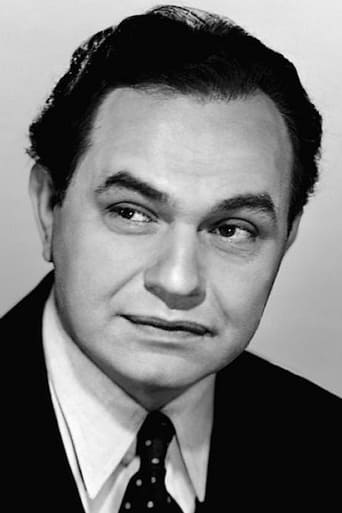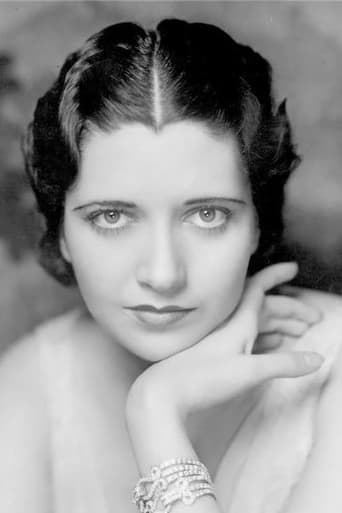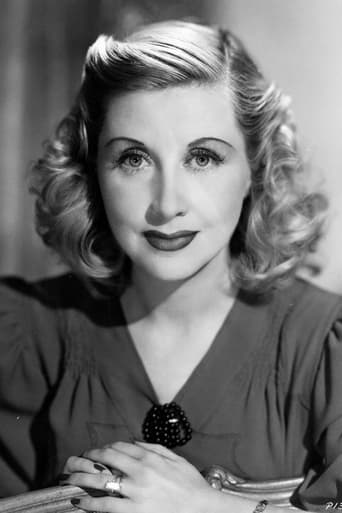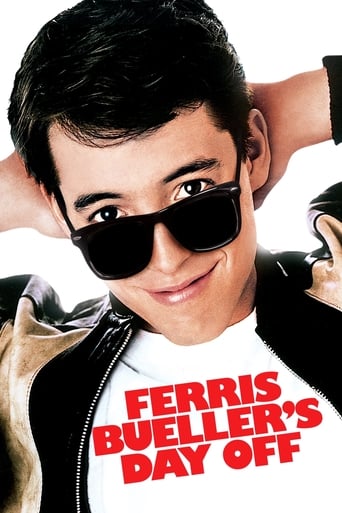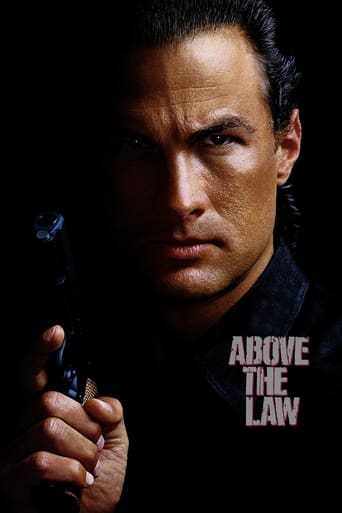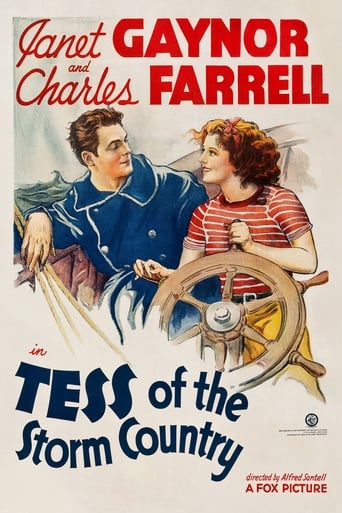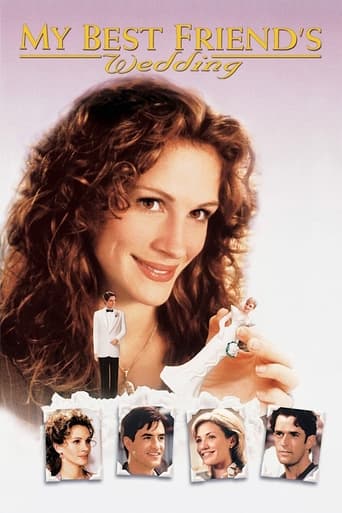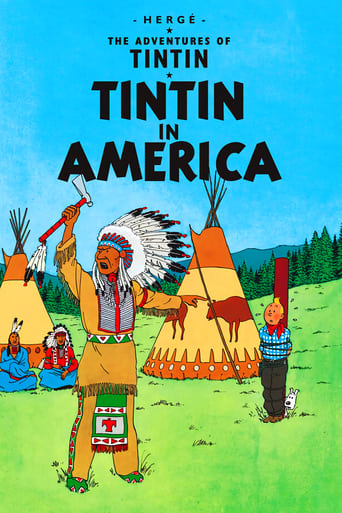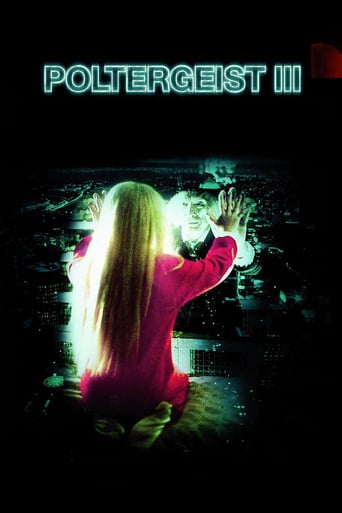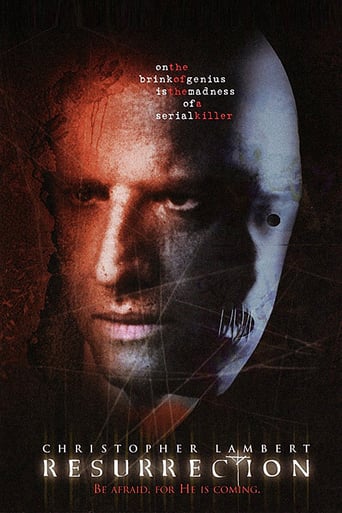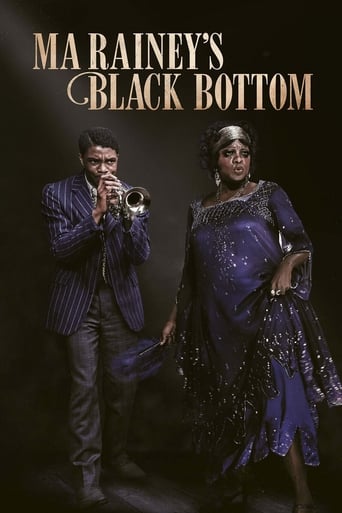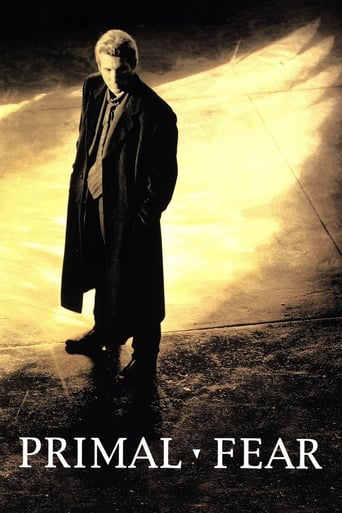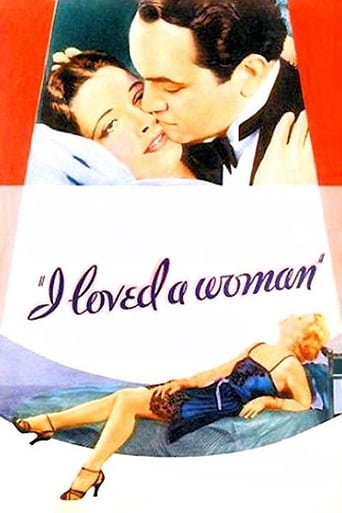
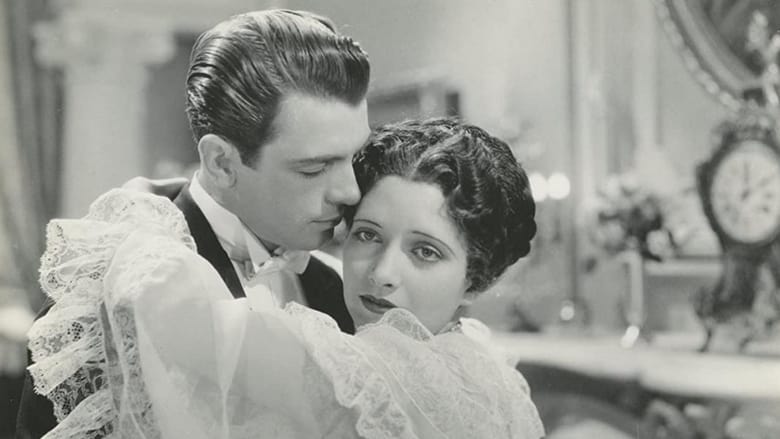
I Loved a Woman (1933)
The son of a ruthless meatpacking king goes through a number of changes in ideals and motivations as he reluctantly inherits the mantle and falls in love.
Watch Trailer
Cast


Similar titles
Reviews
Here's the chance to see what I've been waiting for for years: Kay Francis singing (obviously dubbed) "Home on the Range" in an operatic voice to Edward G. Robinson. That standard American ditty is heard over the opening credits, and later on when Robinson requests it. It becomes their love theme, albeit a silly one, but somehow it adds charm to this saga of a meat baron's life from taking over the family business to his later years after he's pretty much lost everything and ended up like Michael Corleone in "The Godfather Part III": All alone.Robinson as usual is commanding, although this is very similar in nature to his 1932 drama "Silver Dollar" and another 1933 Warner Brothers film about a wealthy man's rise and later disappointments, "The World Changes", with Paul Muni. His character's rise is often sketchy, as the film focuses on the various scandals that plague his years in the business, including his relationship with his pretty wife, Genevieve Tobin, who is obviously shallow at the start and never completely stands by her man. She loses his love to opera singer Francis who is faithful to him for years, but suddenly leaves him for another man, turning him cold and bitter and ruthless in his quest for power.There are political and historical references in this film with passing mentions of the Spanish/American War, McKinley's shooting (which eventually lead to Teddy Roosevelt becoming president and fighting the wealthy barons like Robinson's) and World War I. This was a Warner Brothers "A" picture running in at 90 minutes, so there's plenty of time for various details to be explored, but sometimes it does seem to be missing some important ones to fully explain everything which was going on at the time this took place. Robinson's character remains consistent in his manner and desires, often torn so his performance is one that deserves re-discovery.As for the two women, they couldn't be any more different. When first seen, the beautiful blonde Tobin is sitting in her fancy wagon in the middle of the mud in the Chicago slums, and Robinson quickly charms her with his memories of their childhood friendship. But she quickly reveals to the viewer that she never really loved Robinson and only married him for status, eventually becoming a bitter older woman still beautiful but the hatred in her displayed on her soulless face. She reminded me of Miriam Hopkins in the film version of Theodore Dreissler's "Carrie" without the spitting venom.The always ravishing Kay Francis is the true strength behind Robinson's character, prompting him to go after what he truly wants and encouraging him to be ruthless in getting it, something she is obviously doing in her efforts to become an A class opera star. I had first thought that Francis was the gypsy girl who sings to Robinson as he stands on his balcony, later returning as a hopeful star to be, but my research in the credits proved that to be incorrect. So the women in Robinson's life are far from perfect, far from completely loyal, and this is much more realistic than the many films which had the long-suffering wife willing to put up with all sorts of trauma as her husband neglected her for success. A far from flawless film, this is aided in its lavish presentation and the performances by the three stars plus a gallery of familiar faces in the supporting cast.
Young Edward G. Robinson is discovering the art and culture of Greece and finding himself, when he gets a telegram from home. Heir to a beef- packing business, he reads his father has just died. He rushes home but didn't have much plans or a business mind to take over, when he meets Genevieve Tobin, who is an heir to a competitor. In fact, there are several meat-packing companies, but they don't all use pure beef in their product/business. Edward's father did and their business was number one in the industry, in this film was takes place in 1892, just before Teddy Roosevelt becomes President. In fact, Teddy and Eddie meet and become enemies of sorts. But, I'm ahead of myself. Getting married to Genevieve Tobin, and using only prime beef, Eddie does take over, but the business does not do so well, just adequate and others become more successful. Meanwhile, a young aspiring opera singer (Kay Francis) looking for a backer comes to him, asking for capital as an investment. When he hears her sing and she knows his favorite song, "Home on the Range," he obviously falls for her. But what he didn't realize was that she was what she was. She did form a fond attachment for him, but never claimed to love only him. She was a very cavalier lover. When he is inspired by her gusto to live life fully and go for the gold, he becomes ruthless in getting contracts for his business and in cutting costs, not always using premium beef, like everyone else. But in his getting fat deals, his food affects more people, more important people. So when the fit hits the shan, he is the scapegoat. Meanwhile, Genevieve learns about Kay and she lives for the day to show Edward up. This is a very well-made film that does not overdo its dramatics. In fact, this played out very well and was very realistic. While not a very important film or that great a film in the long run, it really delivers with great performances by all. This was not a turkey by no means, as Edward felt he was being thrown into them by the movie studio all the time. They were uninspired and repetitive to him, as he was a stage actor by heart. He never understood the appeal of "Little Caesar," despite the fact it made him an overnight movie star. Playing a gangster was not all that it was hyped up to be, but this film he felt at least was "about something," as he said in his autobiography. And, he had fond memories of Kay Francis. If you see this on TCM one day, watch and enjoy Edward G. Robinson, one of Hollywood's most versatile actors, who earned an Honorary Oscar for his performances of men in all walks of life.
Seldom seen even on TCM are a series of Edward G. Robinson (E.G.R.) films made at WARNER BROTHERS (W.B.) from 1931 too 1934, with loan-outs to other Major Studios. Many featured themes of rags to riches to rags, with I LOVED A WOMEN (1934) as one such effort.E.G.R, John Mansfield Hayden, scion of wealthy Chicago Meat-Packer returns from Greece to take over the business after his Father dies. Not really cut out for it he marries competitors daughter Martha Lane (Genevieve Tobin). Then meets his muse in aspiring opera singer Laura McDonald (Kay Francis). Now with confidence he builds a 'Empire of Meat' and if it means selling a defective product to the U.S. Army, so be it. In the end he is betrayed by his own ambition and lover. Living in exile in Greece (with his ill gotten gains) he escapes indictment, but his mind goes to the point he has no grasp of reality or his former love.This story is right out of one of Socialist Upton Sinclair's muck-raking novels. THE JUNGLE (1906) being a prime example of the type. E.G.R. gives it his usual effort and is quite convincing as a turn of Century (19th/20th) 'Robber Baron'! Giving a performance the equal of Warren William, who usually filled that slot at the W.B. of the ruthless 'Business Tycoon'. Fine supporting cast backs him up and film runs in a crisp 90" so will not tax the modern audience. Watch it and be entertained.
Here is yet another of the films from early in Edward G. Robinson's career that has inexplicably and unfortunately been forgotten. A tale which anticipates "Citizen Kane" in an astonishing number of ways, it tells the moving story of a multi-dimensional character transformed from an idealistic and impetuous young man into a ruthless, demanding, ultimately abandoned force in business and politics. Robinson's character, John Hayden, knows how to get what he wants, but is never sure what that really is. Solid performances by a first-rate cast complement a scenario able to cover decades with crisp efficiency.There are some unfortunate sequences in which the dialog becomes florid, stilted, and too much in the manner of a lesser Victorian romance. And the use of "Home On The Range" as a Rosebud motif comes across as ludicrous, to put it charitably. Such flaws, however, do not seriously lessen the impact and entertainment value of this undeservedly obscure picture.


